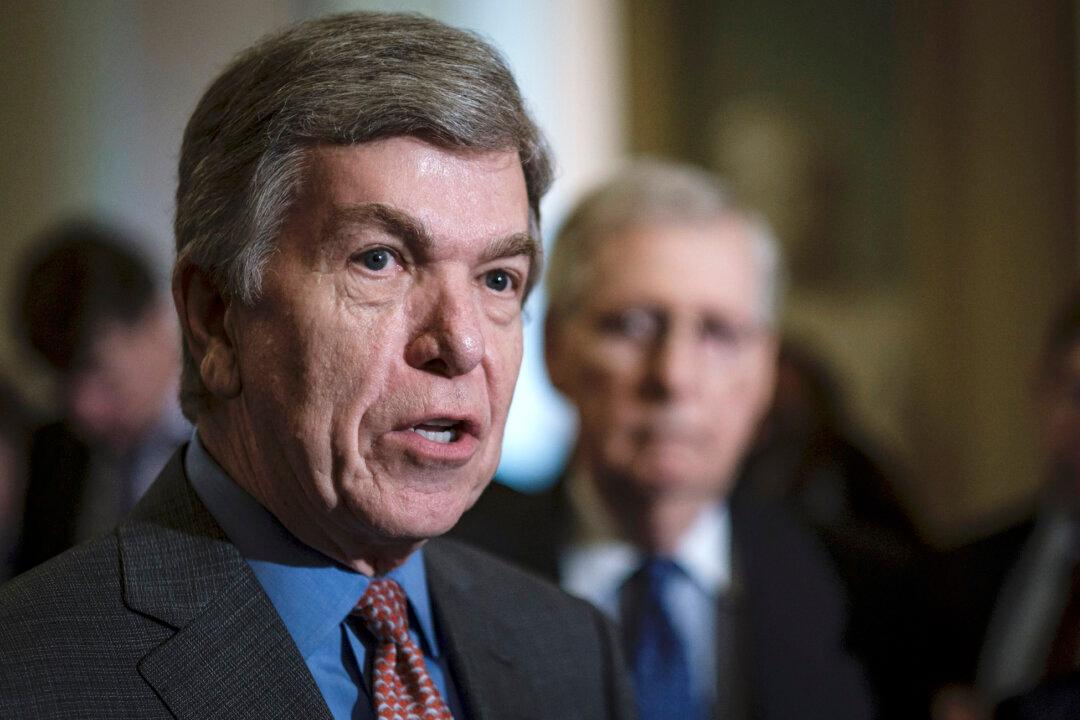Sen. Roy Blunt (R-Mo.) called on President Donald Trump to sign the CCP (Chinese Communist Party) virus relief bill as is, saying there would not be enough votes in the Senate to increase the direct payment amount to $2,000 per American.
Blunt told reporters Thursday that it would be a mistake to try to renegotiate the massive spending package, which includes $900 billion in CCP virus relief and is tied to $1.4 trillion to fund the government in 2021.





